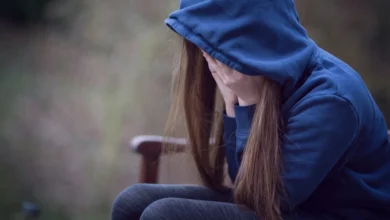Sunday was a special day in the Heliopolis branch of Diwan Bookstore. The bookshop, known for holding workshops and events for children, was the platform for a parenting session titled “Fun Parenting.” Led by Dr. Alaa el-Halwagy, the session turned into an in-depth conversation between the consultant and a number of worried parents eager to find a better way to communicate with their troubled children.
Helping a child to grow into an independent individual is not an easy task. Parents are pressured into accepting a smaller role in their children’s lives to accommodate the needs of the era we live in. The job of parenting is slowly being channeled from parents to nannies, older family members and even the television.
“Words and actions that you disregard as simple or without any effect might cause serious problems between you and your child,” said Dr. Halwagy, who spent the last 25 years working as an executive coach in the United States. “Asking your children to leave you alone because you are busy, or forcing them to watch TV for number of hours while you attend other house chores can be interpreted by them in a different aspect altogether.”
The consultant knows that children don’t come with a “manual” that will answer all the parents’ questions. “I try my best to help my son achieve his maximum capacity,” says the doctor, referring to his teenage son, “but when I fail miserably I take notes to make sure I don’t fall into the same trap again.”
The consultant introduced the “222” project to the attendees. According to Dr. Halwagy, the program, aiming to help both children and parents at the same time, is an on-going style of learning in the United States that Dr. Halwagy is bringing to Egypt. “Each country has its own problems,” he points out, “but we are adjusting our program to suit the Egyptian community and Egyptian family needs.”
The program, working to help children from the age of two up until the age of 22, is divided into two branches. The first branch, which focuses on work with the children themselves, is broken down according to age group into seven categories (each category consisting of three years in the life of a child). The second branch focuses on work with the parents, to help them understand the children and work with them. This branch is broken down into four categories, also according to the child’s age.
“We are not trying to raise book-smart children,” insists the doctor. “We want to create a generation that knows about life and has the right tools to deal with it.”
The “222” project aims to teach children a certain set of concepts based on four kinds of intelligence necessary in life: emotional, mental, physical and spiritual intelligence. The sum of these four elements helps to form the child’s personality and build a bridge between the child and their parents to talk honestly and freely. “The biggest mistake parents make when handling their children’s problem is that they troubleshoot the symptoms of the issue without trying to understand why a child is acting abnormally,” says Dr. Halwagy.
Some of the main goals of the program are to teach children how to follow house rules and their parents’ directions. “There is a difference between rules and directions,” stresses the consultant. “Rules are a set of orders that the family as a whole obeys, and the child learns from the family to follow them, wheras directions are communicated directly by the parents to the child to understand and follow.”
According to Dr. Halwagy, children in the US are subjected to over 250 negative remarks per day and only 25 positive ones. These children need family support to show them that they are worthy of love and affection. “This support can help the children to learn valuable lessons such as honesty, humility, a positive outlook and a sense of humor,” says the doctor with a smile.
The session, lasting for a little over two hours, was attended by a number of Egyptian mothers eager to ask questions. “I would love for this program to come to Egypt,” says Nadia Abdullah, a mother of two young boys.
“I worry about my children,” says a middle-aged woman. “I’m not sure who walks on the streets of Cairo anymore, and if I don’t bring my daughter up the right way, I can’t be sure what kind of peer pressure she might be under.”




